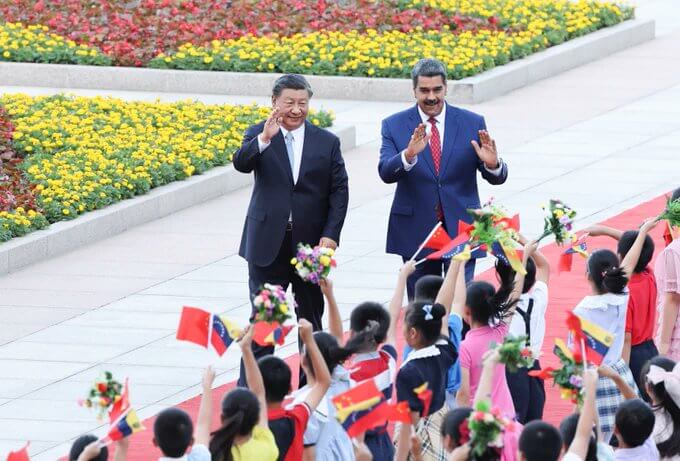China paying less for Venezuelan oil after reimposition of US sanctions
Nicolás Maduro with Xi Jinping in Beijing to strengthen the level of bilateral relations as an “All Weather, All Weather Strategic Partnership”.
Photo: X.
Chinese refineries are paying reduced prices for Venezuelan oil following the reimposition of U.S. sanctions on Venezuela.
Merey oil, used mainly for the production of shoe polish in China, has traded at a discount of up to US $14 per barrel compared to Brent ICE, marking a shift from US $11 prior to the introduction of sanctions and US $8 earlier in the year.
This could result in an increase in Venezuelan barrels purchased by China, as other buyers such as India steer clear of embargoed oil in order to avoid conflicts with Washington. It is estimated that around 130,000 barrels per day previously destined for Indian refineries and 174,000 barrels per day destined for the US could now be headed for the Chinese market instead.
Private Chinese refineries have been consistent consumers of Venezuelan oil, but their strategy of evading sanctions to obtain cheaper oil was disrupted by Washington’s sanctions, which attracted other buyers and drove up prices. Although China officially resumed imports of Venezuelan oil in February, flows have remained stable for years, according to third-party data.
Prior to the sanctions, Merey was at an even deeper discount of up to US $20 per barrel, so the current level, while still favorable, does not generate much enthusiasm among traders.
In addition, the shoe polish industry in China has faced challenges due to economic weakness, with margins falling to negative levels, affecting refinery profitability. In this context, the reinstatement of US sanctions on April 18 could redirect volumes again, although Chinese refineries remain a key market for Venezuelan oil.
Main source:
China paga menos por el petróleo venezolano tras las sanciones reimpuestas por EEUU | Bloomberg Linea (April 25, 2024).
Others related source:
EE. UU. restablece las sanciones petroleras a Venezuela ante situación electoral / The New York Times (April 25, 2024).

